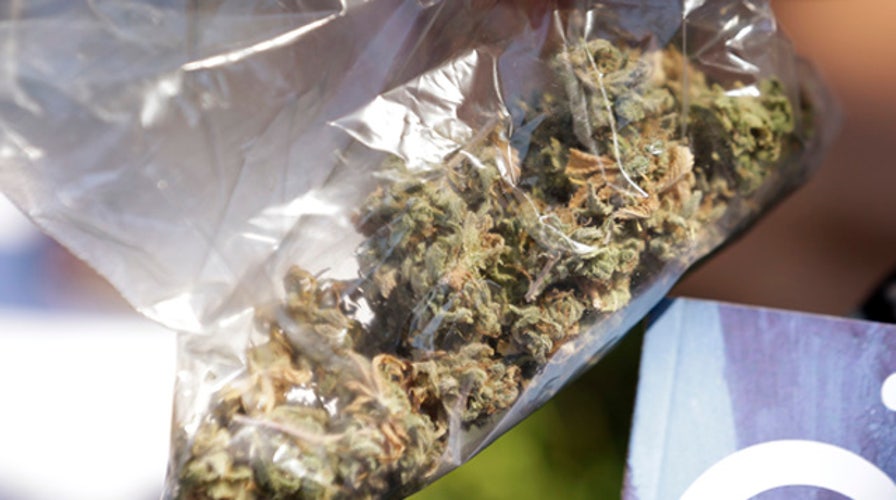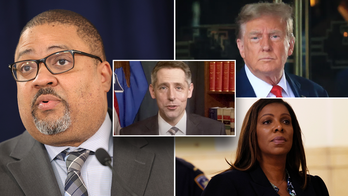DENVER – Colorado and Washington state have both legalized the use and possession of small amounts of marijuana -- but while a majority of voters supported the change at the polls last year, there is currently no outright legal way to buy non-medical marijuana.
That's because the stores that reefer advocates hope will be the next big thing for the free-smoking movement could be shut out in many communities.
In Colorado, an option was built into constitutional Amendment 64 -- which technically legalized the drug -- for cities and towns to opt out.
So far, at least 51 municipal councils have voted to prohibit marijuana-selling stores. And more than 20 have enacted some kind of moratorium to buy more time, according to the Colorado Municipal League (CML) which is keeping tabs on which way towns are going.
Colorado Springs is the state's second-largest city and has medical marijuana, but the city council recently voted 5-4 to opt out of allowing retail stores as well as facilities for cultivation, manufacturing or testing. Don Knight, a councilman who voted with the majority, explained that potential tax revenue was not enough to justify other likely losses. "The input of $3.9 million that recreational marijuana would have given us, compared to the loss of tens of millions dollars, in either military or tourism, just didn't provide a balance sheet to me," he said.
Colorado Springs has several military assets including Fort Carson, the Air Force Academy, Peterson Air Force Base and North American Aerospace Defense Command (NORAD). Knight believes that as military budgets shrink, it is crucial to remain competitive in retaining bases and units.
He said wide availability of marijuana would not help because "city leaders in other places like Huntsville, Omaha, that we compete against, would use that against us as they walk the halls of the Pentagon, saying, 'keep our unit here, we don't allow recreational marijuana sales.' "
Directly south of Colorado Springs, a 45-mile ride down Interstate 25, Pueblo County commissioners are working on regulations and fees for the business of selling marijuana to adults.
Pueblo County Commissioner Liane "Buffie" McFadyen says they are following the will of the voters and it will provide a revenue stream for the area. McFadyen says they have had success with regulating medical marijuana and "as we transition through these difficult times, with Washington and Colorado leading the way on recreational marijuana, it may set the precedent for the U.S. Congress to finally take up the issue in a safe and public safety driven manner." That's because marijuana is still illegal in eyes of federal government.
McFadyen is hopeful for a lucrative ripple effect -- more than just stores could decide to set up shop. "Maybe we'll be the hub of Colorado where we have the testing labs and have a lot of white-collar, good professional jobs contributing to our economy, testing the product from all over the state to ensure the state law is followed," said McFadyen. The county recently approved a greenhouse operation.
Marijuana grown in Pueblo could be trucked up to Denver. The capital's city council is considering legislation that proposes only allowing existing medical marijuana dispensaries to transition to retail for the first two years. In 2016, it would then open up to new businesses.
Despite the chance first stores may be slow coming or isolated to a few sections, legalization co-author Brian Vicente is confident "almost all four corners of the state will be covered." He says residents can still light up in private. "It's important to note citizens of this state who are 21 and over can possess marijuana in those communities, they simply won't be able to purchase it from a store," he said.
Vicente compares it to buying booze. "The marijuana sales will be just like alcohol with dry counties. If I were to live in a dry county, I can drive across the county line, purchase alcohol and bring it home. We're going to see the same with marijuana," he said.
A study by the Colorado Futures Center indicates the adult recreational marijuana market in Colorado will be worth more than $600 million. September is expected to be a "magic month" with stepped up activity here, according to Colorado Municipal League Deputy Director Kevin Bommer. Municipalities are mandated with either opting out or enacting ordinances by Oct. 1.
Washington state differs from Colorado on an important point. Washington's vote did not have language allowing cities to opt out. The state liquor board is working on regulations and if everything goes according to plan, it expects to start accepting applications in mid-November. It will then be up to businesses to meet local codes and ordinances.
Liquor board spokesman Brian Smith, though, says a few places have passed bans which could be "tested" in court; several others have passed moratoriums to wait for final rules.





